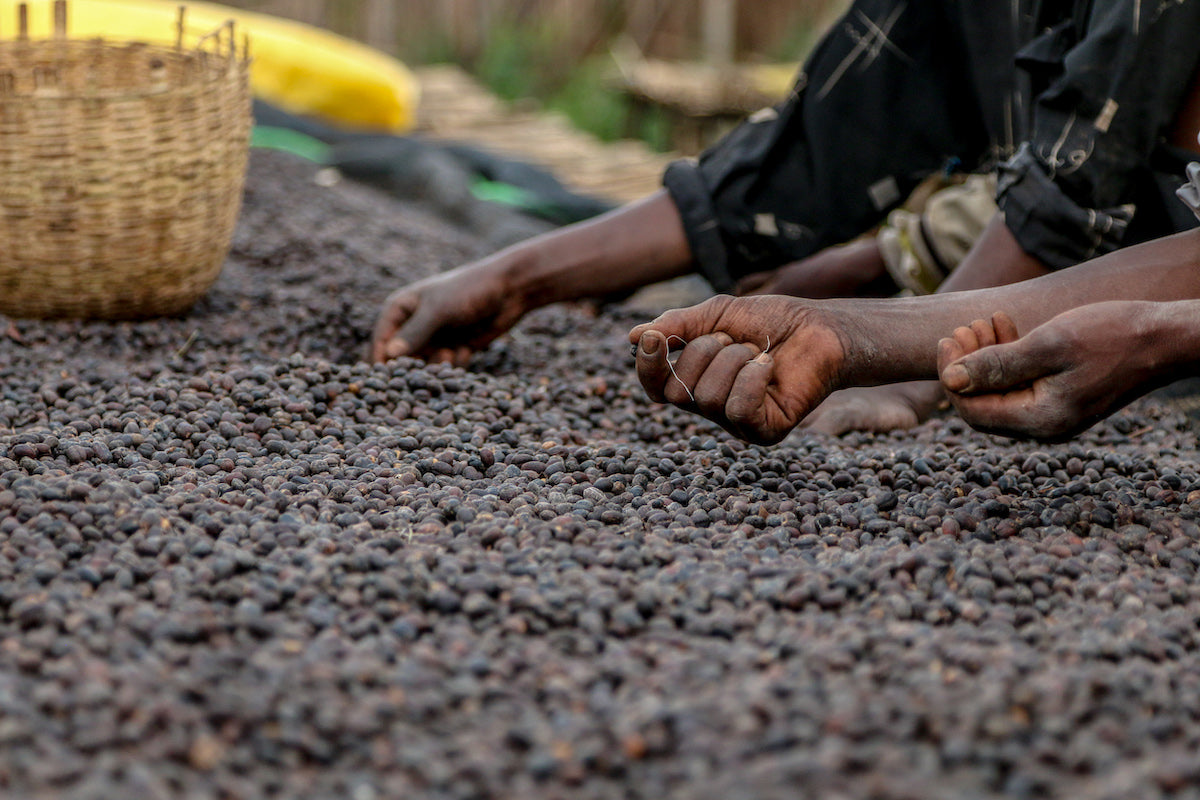
Often referred to as the 'birthplace of coffee', Ethiopia holds a revered place in the world of coffee production. Its rich history, unique coffee varieties, and traditional cultivation practices set it apart from other coffee-producing nations. Let's take a peek into the fascinating journey of coffee production in Ethiopia, from the ancient wild coffee forests to your favourite coffee mug.
Historical Roots of Ethiopian Coffee
Ethiopia is not only a major coffee producer but also the genetic home of Coffee arabica, the species from which all high-quality coffees originate. As the legend goes, a goat herder named Kaldi discovered coffee in the 9th century when he noticed his goats becoming unusually energetic after eating cherries from a particular tree. This tree, as it turned out, was a wild coffee tree.
The Gift of Geography and Climate
Ethiopia's geography is perfectly suited for coffee production. With its high altitudes, diverse microclimates, and fertile soils, Ethiopia provides an ideal habitat for the wild and cultivated coffee trees. Ethiopia's coffee regions - Sidamo, Yirgacheffe, Harrar, Limu, Jima, Lekempti, and others - each have distinct flavour profiles due to differences in their altitudes, rainfall patterns, and temperature conditions.
Coffee Cultivation and Processing
In Ethiopia, coffee is often grown in the understory of native forests, in what's known as 'garden coffee'. Smallholder farmers, who make up the majority of Ethiopian coffee production, typically cultivate their coffee trees without the use of chemicals, relying instead on the natural fertility of the soil.
Harvesting coffee in Ethiopia is a hands-on process, with the ripe coffee cherries picked by hand. Once harvested, the coffee cherries undergo either a dry (natural) or wet (washed) processing method. Natural processing, which involves drying the cherries in the sun, is the traditional Ethiopian method and lends the beans a sweet, fruity flavour. Washed processing, though less traditional, is also common and produces coffees with a bright acidity and clean taste.
Ensuring Quality: The Role of ECX
The Ethiopia Commodity Exchange (ECX) plays a central role in the Ethiopian coffee industry. Established in 2008, the ECX provides a transparent and secure system for buying and selling commodities, including coffee. While its establishment faced criticism for decreasing traceability, improvements have been made to ensure high-quality coffees can maintain their identity and earn premium prices.
Ethiopian Coffee in the Global Market
Ethiopia is the largest coffee producer in Africa and one of the largest in the world. Its coffees, known for their diverse flavour profiles - ranging from wine-like and fruity to tea-like and floral - are sought after by specialty coffee roasters worldwide.
Future Outlook
Ethiopia's coffee industry faces several challenges, including climate change, land management issues, and a need for more modern farming techniques. However, there is a growing focus on sustainable practices, coffee quality improvement, and farmer support, which bodes well for the future of Ethiopian coffee.
Conclusion
The narrative of Ethiopian coffee is as rich and complex as the beans it produces. From the wild coffee forests that are a testament to the country's unique heritage, to the traditional and often organic cultivation methods, Ethiopia offers an unmatched coffee experience. As the nation navigates challenges and embraces modern, sustainable farming practices without losing sight of its roots, Ethiopia is poised to maintain its influential position in the global coffee industry.
The next time you delight in a cup of Ethiopian coffee, take a moment to appreciate its extraordinary journey. From the fertile highlands of Ethiopia, through the hands of diligent farmers, all the way to your cup—every sip you take is not just a taste of exquisite coffee; it's a sip of history, a celebration of heritage, and a testament to the resilience and innovation of the Ethiopian coffee community.
Embracing Ethiopian coffee isn't just about indulging in its distinctive flavours—from the winey and fruity to the tea-like and floral—it's about participating in a tradition that dates back centuries. And as you savour each sip, you're not merely enjoying a world-class brew; you are partaking in a timeless story that continues to unfold.
